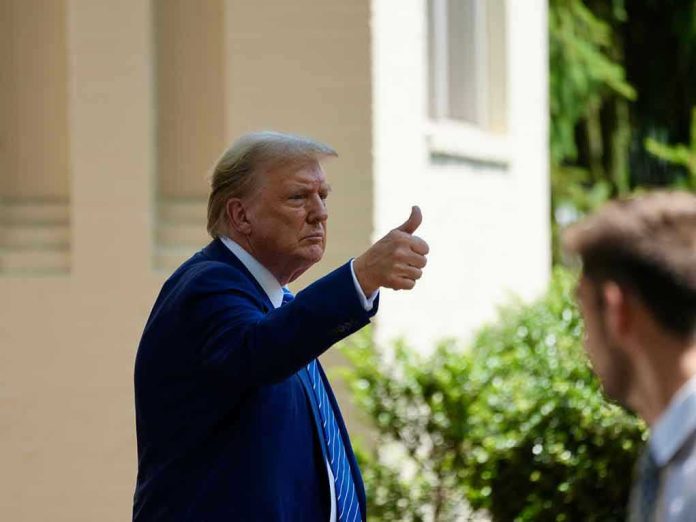
Donald Trump’s $20 billion offer to Argentina could reshape the political and economic landscape of Latin America.
Story Snapshot
- Trump offers Argentina a $20 billion currency swap.
- Aid is contingent on the political success of President Milei.
- This marks a rare direct U.S. intervention in Argentina’s economy.
- Upcoming elections in Argentina could determine the aid’s fate.
Unprecedented U.S. Intervention
The Trump administration’s offer of a $20 billion currency swap to Argentina stands out for its explicit political conditions. The aid is linked to the success of President Javier Milei’s libertarian government, which faces crucial midterm elections on October 26, 2025. The deal represents a significant U.S. intervention in Argentina’s economy, a country historically plagued by instability and currency crises. This move signals an unusual level of direct involvement in a foreign nation’s domestic political affairs.
The currency swap was finalized after Milei’s local election setbacks sparked a currency crisis, leading to a sharp sell-off of the peso. The U.S. Treasury Secretary Scott Bessent announced the deal, emphasizing the administration’s intent to support allies and create regional stability. However, the deal’s conditionality has stirred controversy, highlighting the stakes of the upcoming elections. If Milei’s party loses, the Trump administration has made it clear that the aid could be withdrawn, posing a significant risk to Argentina’s fragile economy.
Historical Context and Political Dynamics
Argentina’s economic woes are not new. The country has a long history of debt defaults and high inflation, often relying on foreign support like the International Monetary Fund’s $57 billion bailout in 2018. President Milei, elected in 2023 on a platform of radical market reforms, has struggled with the implementation of austerity measures amid fierce opposition. The Peronist opposition, led by Cristina Fernández de Kirchner, remains influential and has criticized the U.S. aid package’s conditions.
The Trump administration’s approach marks a departure from traditional diplomatic practices, where economic aid is rarely so explicitly tied to election outcomes. This strategy reflects a broader geopolitical play to bolster like-minded leaders and showcase U.S. influence in Latin America. For Milei, securing the aid is crucial to stabilizing Argentina’s economy and maintaining political legitimacy. However, this support comes at the cost of increased U.S. leverage over Argentina’s domestic policies.
Implications of the Deal
The immediate impact of the currency swap is a stabilization of Argentina’s peso and a temporary boost in investor confidence. Financial markets have reacted positively, yet the underlying structural issues remain unresolved. The aid package provides necessary liquidity but does not address long-term economic challenges. If Milei loses the upcoming elections, the withdrawal of U.S. support could lead to renewed financial turmoil.
President Donald J. Trump and President of Argentina Javier Milei @JMilei. 🇺🇸🤝🇦🇷 pic.twitter.com/YAz1d57jkC
— The White House (@WhiteHouse) October 14, 2025
Socially, the deal has polarized public opinion in Argentina. Critics argue that it undermines national sovereignty and threatens democratic processes by tying foreign aid to electoral outcomes. Supporters believe it represents a pragmatic approach to preventing economic collapse and supporting market reforms. The deal’s political ramifications extend beyond Argentina, potentially setting a precedent for U.S. aid conditionality in Latin America.
Expert Opinions and Future Outlook
Analysts caution that the deal’s unusual political conditions could pose risks if Milei’s government fails to secure victory in the midterms. Financial experts acknowledge the short-term benefits for market stability but question the sustainability of such interventions. Academics express concerns about the implications of U.S. interference in domestic elections, citing potential threats to democratic institutions.
As the October 26 elections approach, the future of U.S. aid hangs in the balance. The outcome will not only determine Argentina’s economic trajectory but also influence the broader geopolitical landscape. The Trump administration’s gamble on Milei’s political fortunes underscores the complex interplay of economic support and political strategy, with far-reaching consequences for both nations.



